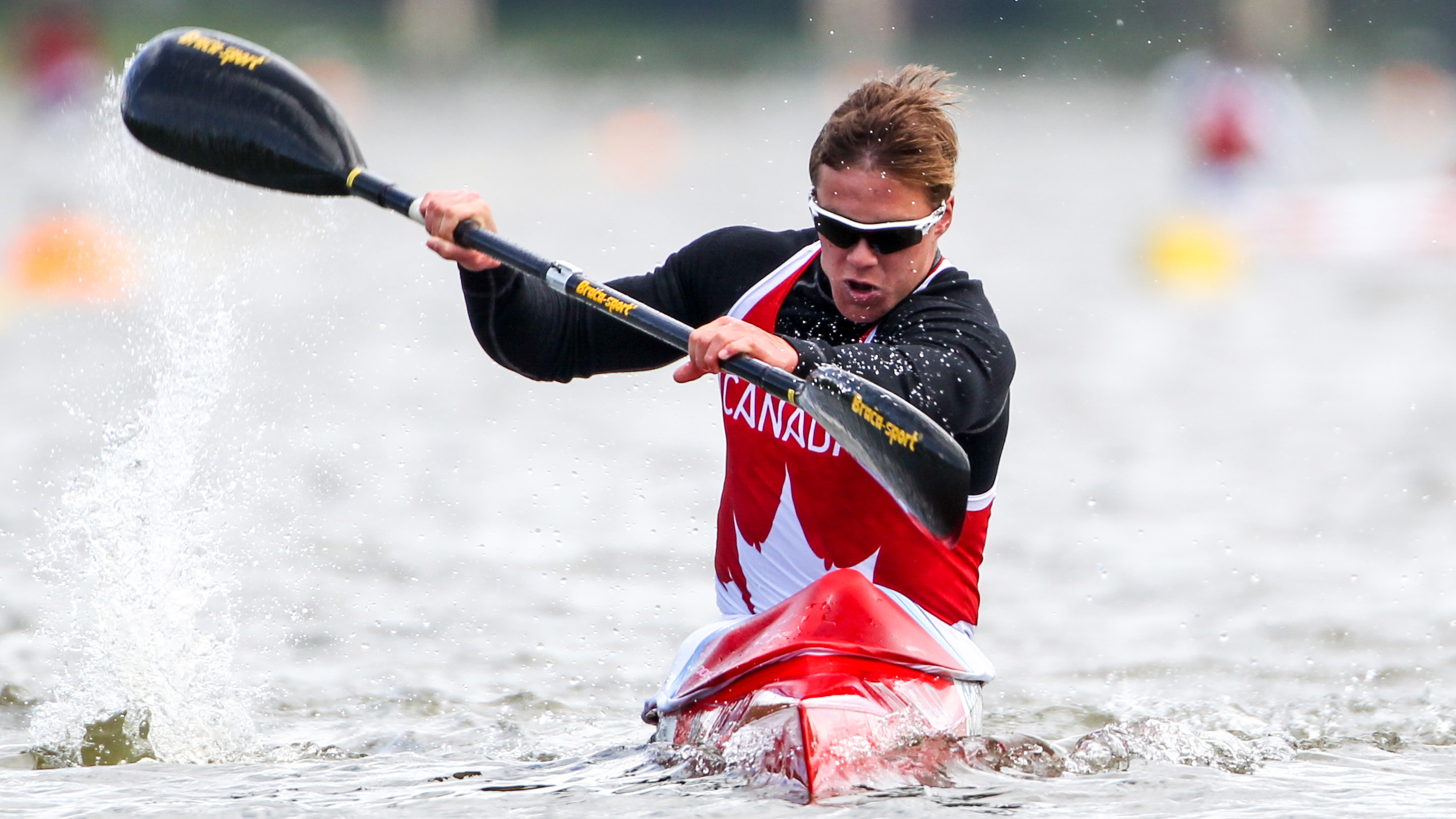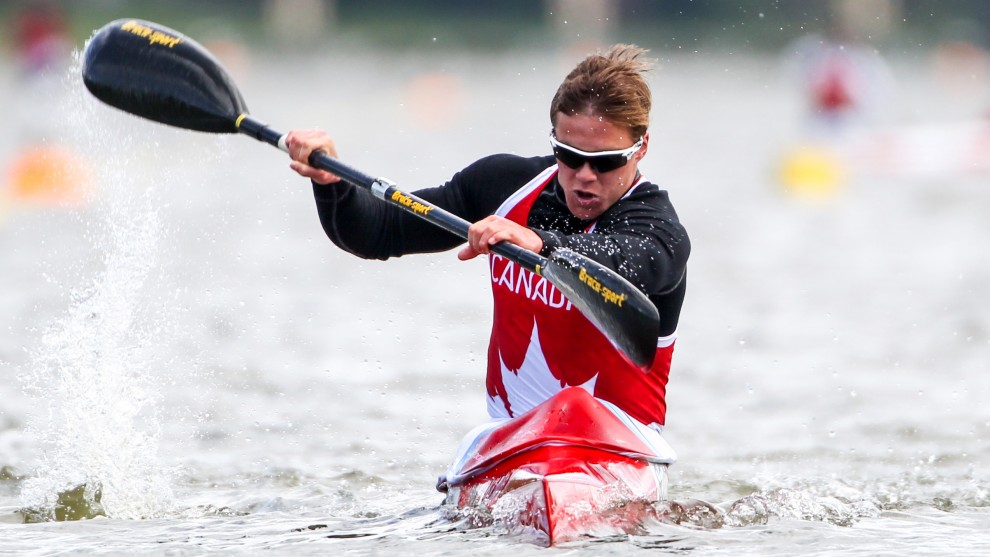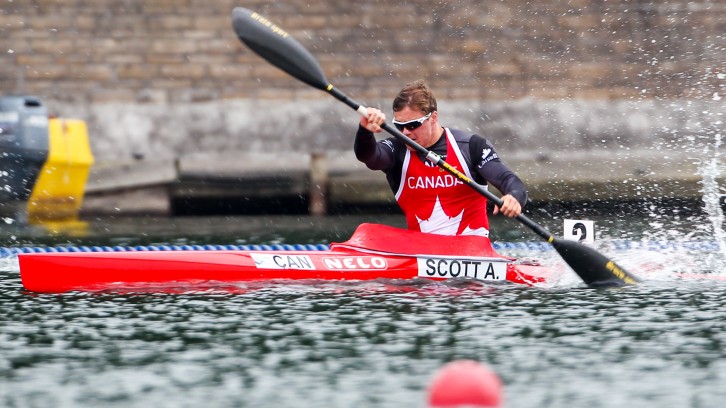Olympic sport
Sprint kayaking – the Nova Scotia advantage
Heading towards the Olympics in Rio, the Canadian elite kayaking squads have a distinctly Atlantic feel.

caption
Alex Scott competing for Canada in Copenhagen last May
caption
Alex Scott competing for Canada in Copenhagen last MayNova Scotia is rarely a dominant sporting force on the national scene, but in one sport, the province is leading the way.
Of the 36 athletes currently named in the national squads for sprint kayak, 13 live and train in Nova Scotia.
With the Rio de Janeiro Olympic games just seven months away, there is a chance there will be at least 10 Nova Scotians taking to the water with the maple leaf across their chest.
Strong history
This hotbed of talent hasn’t just sprung up in recent years. Paddling has deep roots in the region, but the real change has come in the last 30 years.
“We weren’t really a power nationally until probably the mid-80s,” says Jeff Houser, Atlantic regional coach for CanoeKayak Canada and former national team member.
He was part of the revolution at the time that developed the sport in Nova Scotia. According to Houser, the first big change was the decision to view kayaking as a year-round sport. Up until then, athletes would paddle in the summer, but switch focus to other sports, such as hockey, in the winter.
“Scott Logan, who is now the high performance director of CanoeKayak Canada, he directed a group of athletes to start doing this full-year. To make this our main focus,” says Houser.
The next big step forward for the sport in Nova Scotia was the employment of full-time coaches. Houser says six of the nine main clubs in the region currently have professional coaches and this in turn forces clubs to attract and develop the participants to pay for them.
Top-class training
Chad Brooks, national team coach in the Atlantic region, grew up in Lake Echo, N.S. On his street alone there were three Olympians in the sport and this inspired him to start kayaking.
He believes the level of coaching in the province is comparable to anything else offered in Canada and the facilities available to athletes help to provide an elite training environment.
Brooks says, “With the sports centre [Canada Games Centre] and the national team having more of a presence here now, we are able to collaborate more, and not just with canoe-kayak coaches. The inclusion of sports science into the mix has been, at least for me, very very useful.”

caption
Scott takes to the water in DuisbergAlex Scott is just 21 and grew up spending his summers paddling on Kearney Lake with the Maskwa Aquatic Club. He’s now a member of the national sprint kayak squad and agrees with Brooks.
“Compared to the rest of Canada, I think we have a lot of coaches available to the athletes, because of the number of clubs here,” says Scott.
Extra advantage
One final reason that Houser feels kayaking has such a strong base in Nova Scotia is that since the 1980s, the Atlantic division has refused to accept that a smaller population means fewer talented athletes.
“In a lot of sports there’s this ‘Ontario’s so much bigger than us. We just can’t compete with the numbers,’” he says. “I’m a sports science guy. That’s simply not true. It’s never been true. Numbers don’t make for quality.”
This refusal to accept that the limited population in Nova Scotia must result in lower participation is now reflected in the membership statistics. According to Houser, of roughly 5,000 paddlers registered with CanoeKayak Canada, about 2,000 are based around Halifax.
With so many kayakers from Nova Scotia, including current World Champion Mark de Jonge, competing for Olympic places, this summer could be a golden one for the province.


Z
Zoltan Marschalko